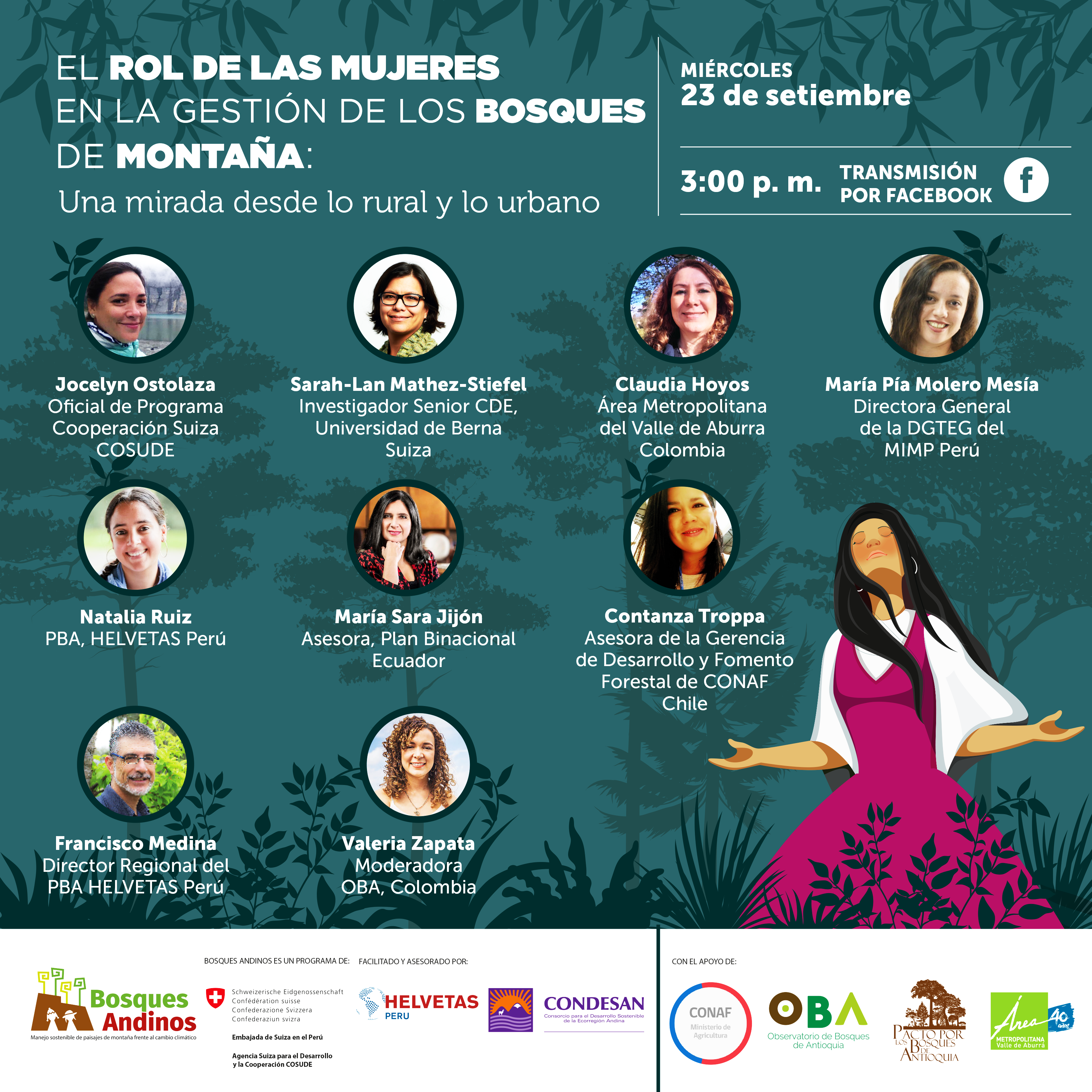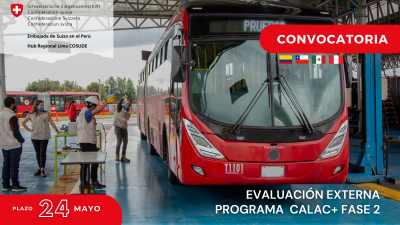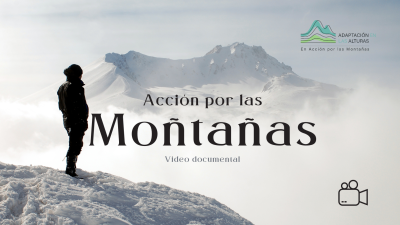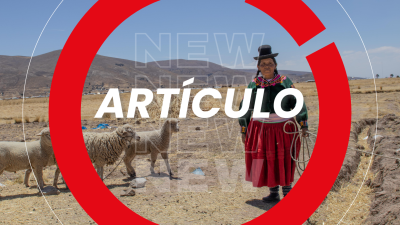In order to achieve gender equality and empower all women and girls, SDG 5 seeks to end all forms of discrimination against all women and girls worldwide; to undertake reforms that give women equal rights to economic resources and access to ownership and control of land and other property.
The webinar “The role of women in the management of mountain forests: a rural and urban perspective” was held on Wednesday 23 September, to socialise the findings of the Andean Forest Programme in Antioquia, Pichincha and Apurimac, and to encourage reflection on gender aspects in the management and conservation of Andean forests.
The webinar had several aims. To bring to the fore the information the AFP has produced, the progress it has made in its two phases, and the challenges yet to be addressed; to contribute to the national discussion on the gender approach and the role of women in the communities, management and research in Andean forests; to present examples in which the empowerment of women is a response to the search for efficient, fair and equitable management of natural resources, safeguarding them for new generations; and to start formulating a summary of gender aspects in Andean forest management and conservation.
The webinar had a large panel of women responsible for management and research on the gender approach with emphasis on the Andean forests, and they provided the perspectives of cooperation agencies and academia, and national views from Ecuador, Colombia, Chile and Peru.
“In rural areas, certain roles in the home, at work, and in natural resources and forest management strengthen prejudices regarding women’s participation in community decisions. This is repeated in decision-making, research and in policy-building. That is why we want to put our experience on the agenda and in the dialogue, but we also want to include management experience in the Andean countries” explained Francisco Medina, AFP Regional Director.
Natalia Ruiz-Guevara, Head of Monitoring and Evaluation of the Andean Forests Programme (HELVETAS Peru), began her talk by focusing on the AFP’s learning sites. “Closing the gaps to achieve gender equality is a global commitment included in the Sustainable Development Goals, and one that we have been working with in the programme. Over 4000 women have benefited from the programme during phase 1, by participating in training and in implementing good practices in forest management. But beyond the figures, the project has conducted a more in-depth analysis of women’s roles and the complementary roles between women and men, to empower women in conservation, economic activities, forest management and adaptation to climate change” she said. [check her presentation here].
“Swiss cooperation promotes gender equality by encouraging the empowerment of women and girls, in order to achieve sustainable development as a crucial aspect of poverty reduction. This is why SDC works to consolidate equality and promote the potential of both men and women to manage natural resources,” stressed Jocelyn Ostolaza, National Programme Officer of the Swiss Agency for Development and Cooperation (SDC).
Gender can be summarised as the social roles between men and women and the power links between them, which vary according to the context. These roles are reflected in their activities, decision-making and knowledge. Dr. Sarah-Lan Marthez, of the CDE at the University of Bern, proposed objectives based on the Research Agenda for the Conservation and Sustainable Governance of Andean Forest Landscapes (2017). “There needs to be a vision of sustainability goals shared by local people and outsiders. That is why we propose three priority research objectives: (1) To understand the perceptions, cultural values and knowledge of men and women; (2) To take into account environmental justice and equality; (3) To develop inclusive methods for producing information at local level; and to involve men and women, taking their differentiated needs into account”.

National Views
Colombia:
“In the metropolitan area, in an urban setting, there are more opportunities for women to take part in public policy, so in that sense they can take part and share power. However, there is a vulnerable population in Colombia because of the armed conflict, which leaves many women as heads of household and also leads to violence (feminicide). In the forests, people are reappraising the value of forests, because of the goods and services they provide. We have found that around 50% of the beneficiaries of BANCO2 are women” said Claudia Hoyos, Biodiversity and Ecosystem Services Specialists of the Aburrá Valley Metropolitan Area.
Peru:
“Women’s inequality is a result of the structural discrimination visible in all aspects of life everywhere. So, how can we achieve equality in the use, management, access and administration of natural resources in the Andean forests? Our work must consider the gender perspective, which helps us to understand women and their proposals by studying their actions, their knowledge and their feelings. In the Andean forests we have a cultural diversity, and a world view that is closely linked to the views on gender. In Peru we have the National Gender Equality Policy, a great step forward here”. María Pía Molero, Director of the Gender Mainstreaming Department (DGTEG). Ministry of Women and Vulnerable Populations.
Ecuador:
“Ecuador’s Vice-president promoted the national dialogue in order to bring together various actors on seven issues, two of which are related to conservation and restoration. The Executive Technical Working Party was created and signed the Sustainable Forests Pacts. It found that women in rural areas have a role of resistance, they are warriors, and it is women who defend the forests from the assaults of the extractive industries and illegal logging in the timber sector. In the Andes there are different indigenous nationalities. Men have a very different relationship with the forest from that of women. Women are traditionally the wise ones. They use forests sustainably, know the plants’ medicinal properties, and are committed to their conservation” María Sara Jijón, Advisor to the Bi-national Plan.
Chile:
“In Chile, the Native Forest Law was passed and we started to work on forest and forest product management. We realised that women participated very little in the incentive because they have a land tenure problem, and they have no access to development, funding or technical assistance. This is a contradiction, because they are the ones who mostly produce food, 60% of it in developing countries, but they own less than 2% of the property. In spite of this, they are much more capable of managing the forest overall and they develop businesses that are different from those of men. So we must design differentiated instruments for men and women, since their roles and interaction with the forest are different. We are working on this”. Constanza Troppa, Advisor to CONAF Forest Management and Development.

- Valeria Zapata from the Antioquía Forest Observatory (OBA) was the moderator for the presentations and the webinar.
Conclusions
- The gender approach is making progress. Paradigms are changing and many women are taking new steps.
- The roles and conditions in natural resources management correspond to a structure, but they are changing as a result of our projects. Understanding the relationship of men and women with the forest and their understanding will let us promote initiatives that create the conditions for equal access.
- Despite this progress, there is still much to be done. These opportunities for dialogue, awareness raising, advocacy and discussion of findings and achievements inspire us to continue working with this perspective of equality between men and women.
Bibliography
López, I. 2005. Género en la agenda internacional del desarrollo: un enfoque de derechos humanos. Revista Académica de Relaciones Internacionales (2). 36 p. Consultado 2 nov. 2016. Disponible en
Mathez-Stiefel, S-L., Peralvo, M. y Báez, S. 2017. Hacia la conservación y la gobernanza sostenible de los paisajes de bosques andinos: Una agenda de investigación. Programa Bosques Andinos de la Agencia Suiza para el Desarrollo y la Cooperación – COSUDE, CONDESAN, HELVETAS Swiss Intercooperation, CDE -University of Bern. Quito, 32 p.
Mathez-Stiefel, S-L., et al. 2016. Identifying Gender-Sensitive Agroforestry Options: Methodological Considerations From the Field. Mountain Research and Development








